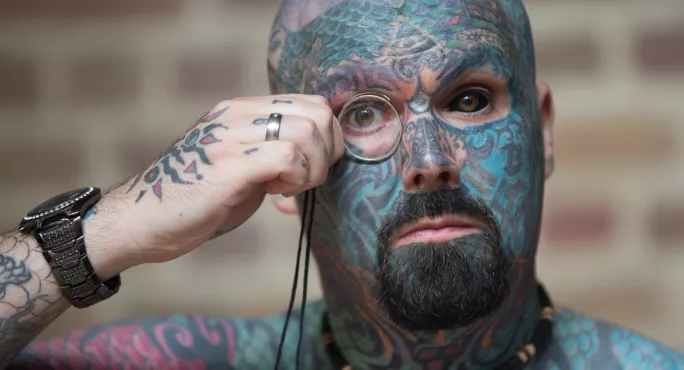“Seven. That’s how many times I’ve been tattooed, the most recent being last summer,” writes Caroline Spalding in the 14 October issue of TES.
But the director of English at Tupton Hall School in Chesterfield does not show these tattoos off at work, because her school policy is that tattoos should be covered. And Spalding says she is happy to comply.
“The blunt truth is I have seven tattoos because I like the way they look,” she explains. “Yet, despite my love of them and the numerous hours of discomfort I’ve endured to have them, my tattoos remain hidden once I am through the school gates. From the moment I pull up in the car park until I drive off at night, I’m happy to look the same as the other suited and booted teachers. I’m comfortable conforming with the school policy that dictates tattoos should not be visible.”
However, she began to wonder whether not being her ‘true’ self was damaging her ability to teach.
“Teaching is about relationships, and relationships are about authenticity and honesty. How honest are those of us who hide our true selves away at school?” she asks.
Authentic look?
Her article goes on to explore the relationship between how we look, what our school can dictate and where the line between professional and personality sits for different teachers.
English teacher Haili Hughes tells Spalding that she could not work for any school with a strict appearance code.
“I’d feel like a complete fraud,” she says. “I spend the majority of my life in school, so I would hate to feel uncomfortable pretending to be something I’m not. I’m not a good enough actress.”
For Hughes, her dyed hair and tattooed arms are part of her wider mission to teach students to be tolerant of difference, as well as to take pride in their own identities. “I want to be a lifeline to all of those kids out there who feel marginalised and different, and say, look, it will be OK,” she explains.
The right school for you
Spalding concludes that, though “contrary to the opinion of some, dressing alternatively or having tattoos plays no role whatsoever in how good a teacher you are”, she believes teachers should respect a school’s policy and if they do not agree with it, find a school that matches their own outlook.
“One tattooed primary school teacher told me that, ‘if the school has a particular standpoint on something, it’s vital for staff to be seen upholding this’. I would agree,” she writes.
And legally, Matthew Wolton, partner at solicitors Clark Holt, says schools are within their rights to dictate the appearance of teachers.
“The position is clear when dealing with things that cannot legally be regarded as discrimination. Visible tattoos and coloured hair are examples where, as long as there is a justifiable reason for the requirement, such as wanting to present a professional image, a school can set its own policy.”
This is an edited version of an article in the 14 October edition of TES. To subscribe, click here. This week’s TES magazine is available at all good newsagents. To download the digital edition, Android users can click here and iOS users can click here.
Want to keep up with the latest education news and opinion? Follow TES on Twitter and like TES on Facebook




